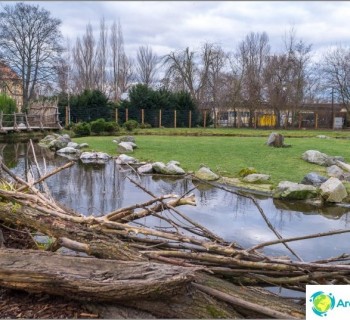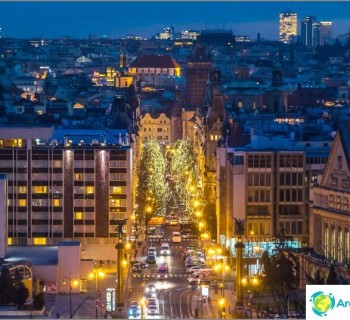Finally, I managed to find a way to transport photographic equipment, which suits me 100%. How many options I have tried and scrolled through my head, do not count, but everything turned out to be banal and simple. It's not a fact that this will suit you, but I will nevertheless share my thoughts, although, of course, I will not open America to you. The most important thing is that this option is budgetary, very compact, and suitable for any type of travel, be it a hike, a walk around the city or a trip to Asia..
The content of the article
My universal and commonplace set
The tasks that I needed to solve
- Always need quick access to your camera and interchangeable lenses.
- Nothing should be hanging on one shoulder, or something that hangs should be light (on two shoulders you can).
- The versatility of the solution, so that it is suitable for a city walk, for a hike, and for traveling to Asia, that is, it does not require separate means of transportation, depending on the travel format.
- Budgetary.
As you can imagine, these requirements cannot be realized with just one photo backpack (review of the backpack Kata 3N1-33), or one photo bag (Think Tank bag review). You need something in between, or the whole set of things at once, which is sometimes quite problematic to take with you because of their total volume. Moreover, instant access is only when the camera hangs ready on the neck, or in extreme cases a photo bag, because experience has shown that a slingo-photo backpack is not very suitable for this, but I generally keep quiet about ordinary photo backpacks.
An important point - I proceed from the fact that on a trip I only need a carcass with 2-3 lenses (how to choose a lens), and accessories to it. Therefore, for wedding photographers or completely already professionals who have a whole line of photographic equipment, my option is not suitable.
Do I need a photo backpack at all?
To be honest, I almost stopped using it, because I do not need quick access to many accessories. In fact, the standard lens is already screwed on, the second lens hangs on the belt and you can quickly change it (you can also hang the third one on the belt), you rarely need a polaric or an additional battery and you can get it from a regular backpack. In addition, you cannot drag to Asia (I am now in Thailand), and a city backpack, and a photo backpack, there will be too many things ...
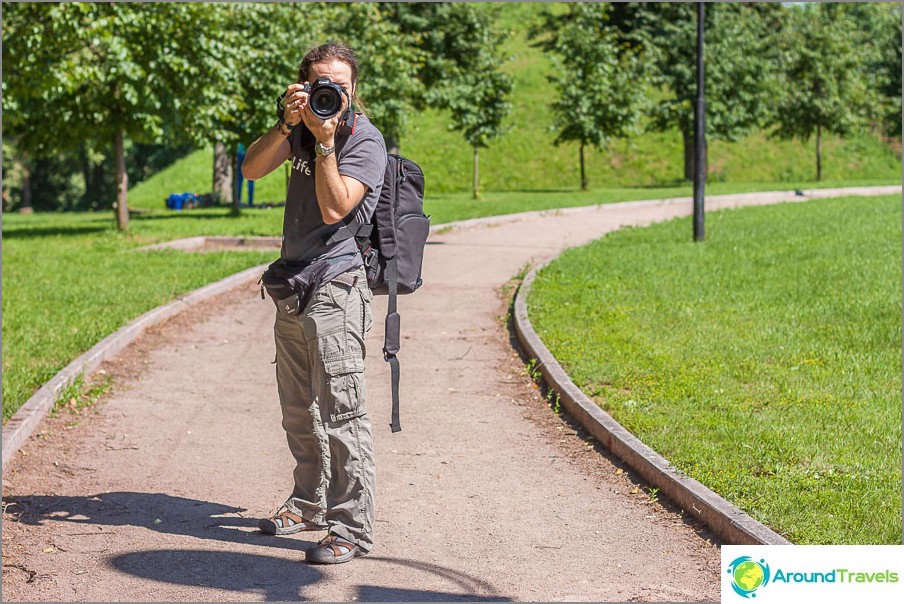
Why a photo backpack if the carcass is on the neck and the lens is on the belt
But for some travel formats, it still suits well. For example, when you go nearby for a couple of days, as I went to Kharkov. And apart from photo junk, which ideally needs to take everything with you, almost nothing is needed. In general, such a backpack is convenient for transporting equipment from one point to another or for storage, as well as for those who need constant access to a variety of devices and lenses (wedding photographers and others like them).
My set for 8500 rubles
My set consists of 4 things:
- ThinkTank photo bag (3000r)
- ThinkTank lens case (1500r)
- Urban backpack Arpenaz 27 from Decathlon (3000r)
- travel bag from Decathlon (960 rub)
Life hack - when ordering online on the Decathlon website, but through the Letyshop cashback service, there will be a return of 2.5-5% for all goods. If you are not yet in the know, then they have delivery, so you can order everything for yourself at home. By the way, there is not only Decathlon on the list, you can return cashback from a bunch of other stores.
The total cost is about 8500 rubles, as for a regular photo backpack. However, this scheme is functionally much more versatile than a regular photo backpack. And the most convenient thing is that when traveling, and in Moscow too, I use the Arpenaz backpack as an urban one, so it could even be ignored in this amount, since I still had it. By and large, anyone can do it (but I always need a laptop compartment). And other things, such as a small photo bag, a lens case and a travel bag, can be found twice cheaper on the same Aliexpress, which makes this option even more budgetary..
Life hack - when shopping on Aliexpress, you can get cashback up to 11% through the EPN service (they have a browser plugin, an application for phones). I wrote everything in great detail in my instructions, what is it and how to use it.
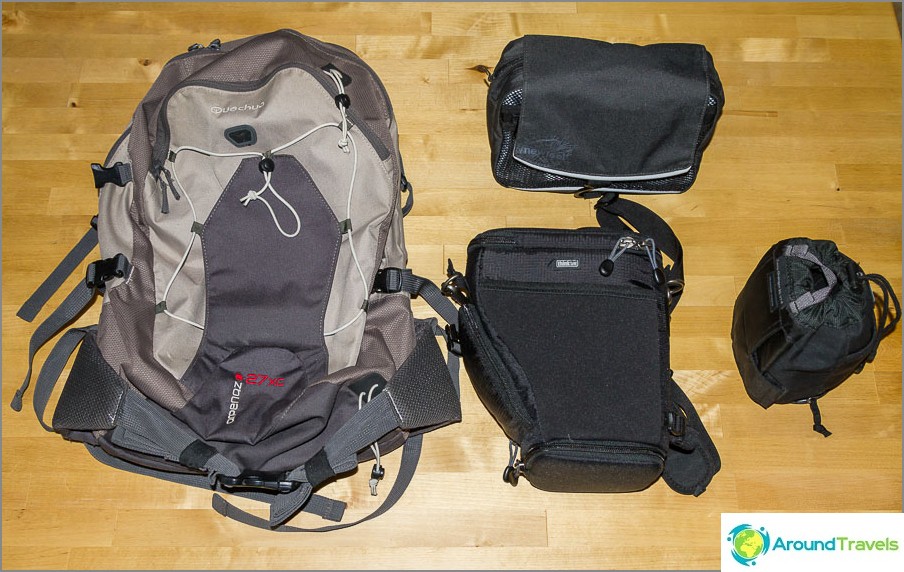
A universal set for all occasions
Examples of using
Just in case, I will describe examples of use, although everything seems to be understood. I tried it everywhere, I did not notice any cons for myself.
Hiking trip
Since I almost always have a backpack on my shoulders (how to choose a hiking backpack), but you want to take pictures while walking, the most convenient option is a photo bag around your neck, access to it is instant. Moreover, it should not be heavy, which means that it should only contain a camera (which camera to choose) and one screwed-on lens. And when you don't need to shoot anything, the photo bag simply stows away inside the backpack. The camera must be in the case, because it can rain, there are stones, branches around, it is dangerous to leave it unprotected.
In those cases when it is supposed to shoot with the second lens, it is hung either on a photo bag (though it is already heavy then), or right there on a waist belt or on some strap, since there are many places for backpackers to attach with a backpack..
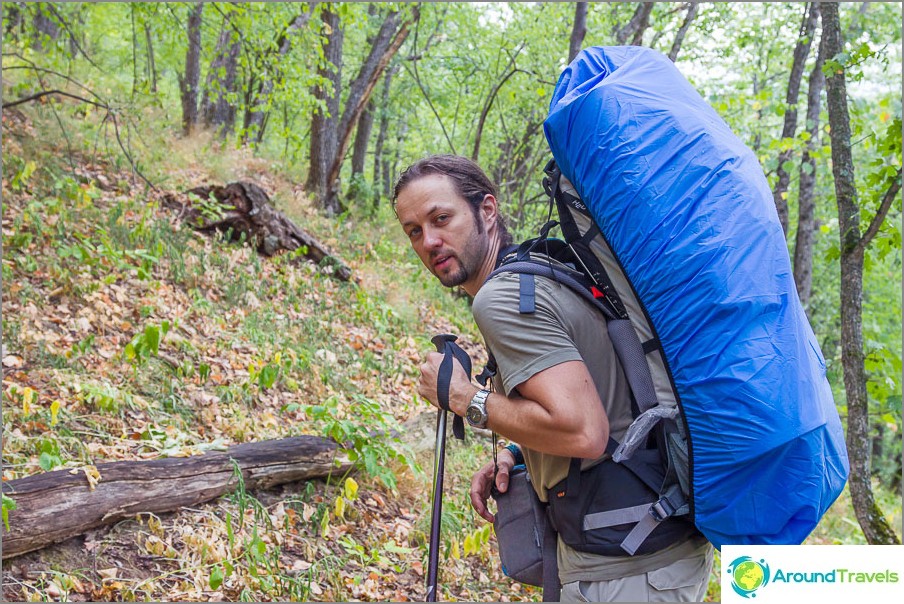
Hiking: the photo bag hangs around the neck, the rest is inside the hiking backpack
City walk
I always and everywhere go around the city with a city backpack (even to a store, or when I drive a car), so it's not difficult for me (and its volume allows) to put a photo bag and a case with a lens in it. You can even put the carcass immediately, without a bag, so it takes up even less space. And as soon as I arrive at a place where I will take a lot of photographs, I just hang the camera around my neck, so it will be in full combat readiness. I hang the case with the lens on my belt.
If filming is not planned for that day, and I take the camera down just in case, then it is in my backpack in a photo bag or without it. Backpacks are so good that plus or minus a couple of kilograms on the shoulders are not felt at all. It is also convenient that at any time I can hang a photo bag on my shoulder if I suddenly need to free up space in my backpack. For example, I went to buy groceries at a supermarket.
Another good thing about a large city backpack (but visually compact) is that you can stuff additional things into it at any time: a tripod, accessories, clothes, a bottle of water. In photo backpacks, there is usually a very small compartment for such things, where the entire volume is occupied by soft partitions..
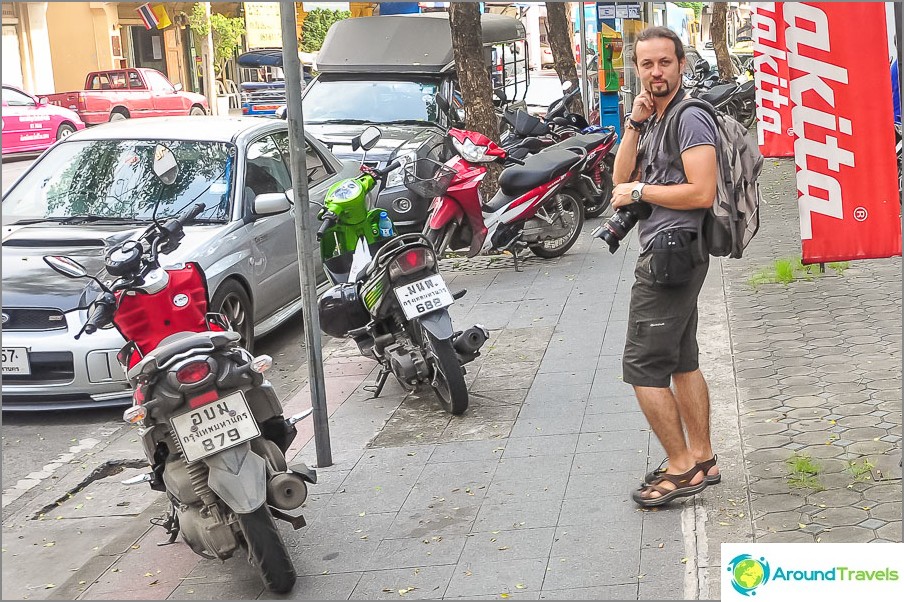
Walking around the city: backpack on the back, camera on the neck, lens on the belt
Travel to Asia
Despite its visually small size, the Arpenaz 27 allows you to stuff a lot into it. Therefore, it is well suited for hand luggage on the plane. A laptop, a photo bag, a case with a lens, two travel bags with valuable accessories, a fleece and all sorts of small things can easily fit into it. I am sure that there are plenty of similar models of backpacks on the market now and there is a choice. I just want to point out that the Arpenaz is very lightweight because it only has nubs in the laptop compartment..
When I arrive in a new country, I put the Arpenaz (it's soft enough) inside my backpack along with the rest of the junk, but leave a photo bag around my neck, which allows me to shoot while traveling with all my things and with a backpack on my shoulders. In fact, we get «hiking option». By the way, because of the rigid structure, stuffing a photo backpack into a travel bag is so problematic, as well as into a small suitcase..
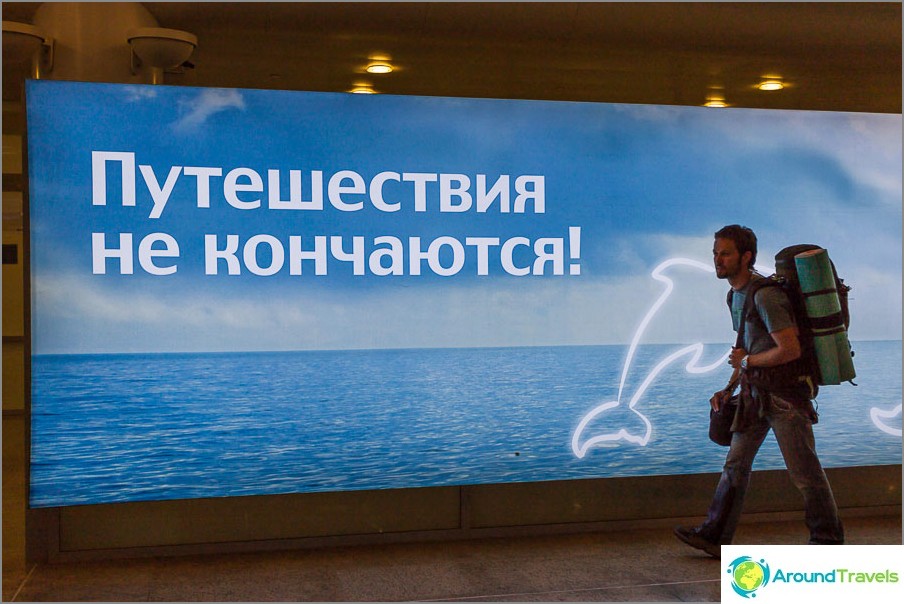
At the airport: urban tucked into the camp, photo bag outside
After the things are left at the hotel (I always search through the RoomGuru super service), I use the option I have already described while walking: a city backpack + a photo bag + a case or a city backpack + a carcass without a bag + case, that is «urban option». And, if I'm not going to shoot anything, or let's say I'm going to the supermarket for groceries, then I only take my city backpack..
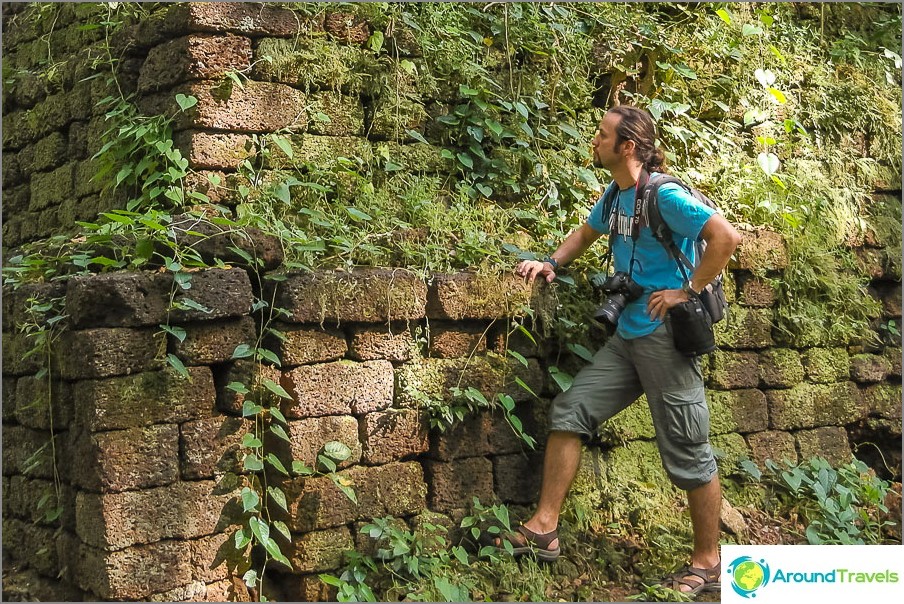
On the ruins of Asia: backpack on the back, camera on the neck, lens on the belt
P.S. It's trite, but it took three years to understand that the best is the simplest 🙂 By the way, Dakin has quite good photo backpacks that look like ordinary ones, but inside there is a built-in photo bag that can be removed if necessary. The solution is more versatile than a regular photo backpack.
